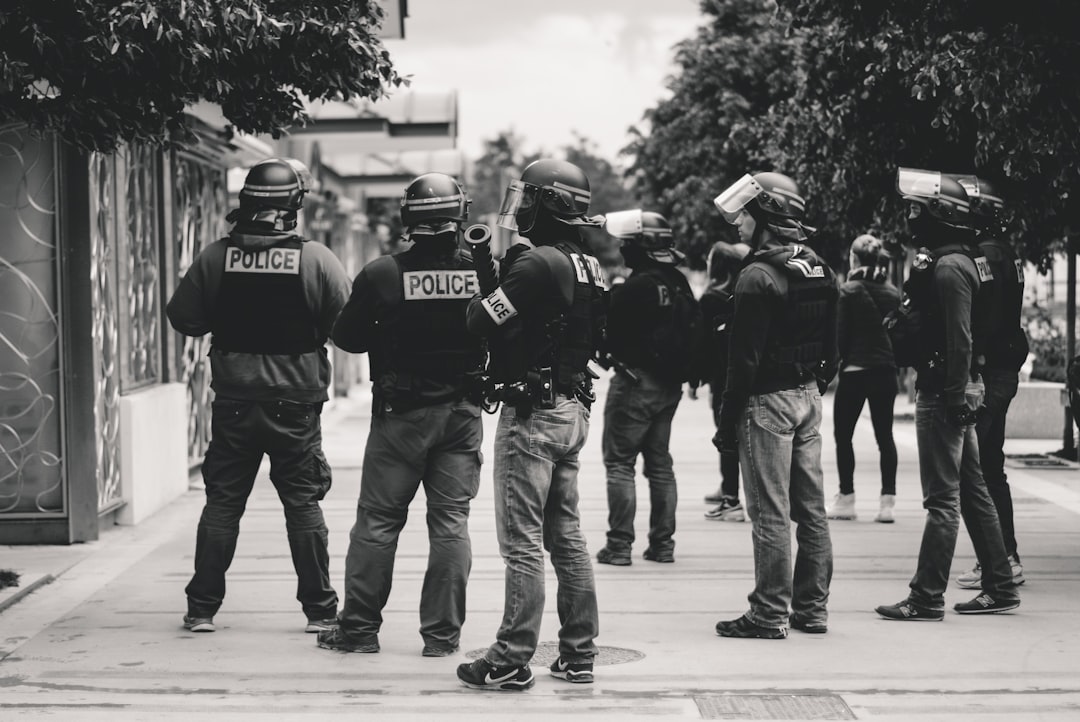
If you’re considering a career in criminal justice, this article is for you. We’ll explore 20 potential careers you can pursue with a degree in this field.
For each job, we’ll provide a brief description, outline the education requirements, discuss expected job growth, list potential employment locations, and provide an estimated average salary.
List of Criminal Justice Degree Jobs
1. Police Officer
Job Description:
Police officers are responsible for enforcing laws, responding to emergencies, patrolling assigned areas, conducting traffic stops, arresting suspects, and writing detailed reports.
Education Requirement:
A high school diploma is required, but many departments prefer candidates with a bachelor’s degree in criminal justice or a related field.
Expected Job Growth:
The Bureau of Labor Statistics (BLS) projects a 5% increase in police officer jobs from 2019-2029.
Employment Locations:
Police departments, schools, airports, and various public spaces.
Average Salary:
The median annual wage for police officers was $65,170 as of May 2020.
2. Correctional Officer
Job Description:
Correctional officers oversee individuals who have been arrested and are awaiting trial or who have been sentenced to serve time in jail or prison.
Education Requirement:
Most positions require a high school diploma, though some federal jobs require at least a bachelor’s degree.
Expected Job Growth:
The BLS predicts a 7% decline in correctional officer jobs from 2019-2029.
Employment Locations:
Prisons, jails, and detention centers.
Average Salary:
The median annual wage for correctional officers was $45,180 as of May 2020.
3. Private Investigator
Job Description:
Private investigators conduct investigations related to legal, financial, and personal matters. They offer services such as verifying people’s backgrounds, tracing missing persons, and investigating computer crimes.
Education Requirement:
While a high school diploma may be sufficient for some jobs, many employers prefer candidates with a bachelor’s degree in a field such as criminal justice.
Expected Job Growth:
The BLS projects an 8% increase in private investigator jobs from 2019-2029.
Employment Locations:
Private investigation firms, law firms, corporations, and self-employment.
Average Salary:
The median annual wage for private investigators was $50,510 as of May 2020.
4. Criminal Profiler
Job Description:
Criminal profilers analyze crime scenes, evidence, and behavior patterns to predict offender characteristics and assist in solving crimes.
Education Requirement:
A bachelor’s degree in criminal justice or psychology is often required, with some agencies preferring a master’s degree.
Expected Job Growth:
Specific data on criminal profiler job growth isn’t available, but the BLS projects a 5% increase in forensic science technician jobs from 2019-2029, which could suggest a similar trend.
Employment Locations:
Federal and state law enforcement agencies, consulting firms.
Average Salary:
The salary varies widely depending on the specific agency and location, but it typically ranges from $39,000 to $105,000.
5. Crime Prevention Specialist
Job Description:
Crime prevention specialists work with communities and law enforcement to develop strategies to prevent crime. They may conduct security surveys, organize neighborhood watch programs, and give presentations about crime prevention.
Education Requirement:
A bachelor’s degree in criminal justice or a related field is typically required.
Expected Job Growth:
Specific data isn’t available, but job opportunities may grow with increased community focus on crime prevention.
Employment Locations:
Police departments, government agencies, community organizations.
Average Salary:
The average salary for crime prevention specialists is around $43,000.
6. Crime Scene Investigator
Job Description:
Crime scene investigators collect and analyze evidence from crime scenes. They may take photographs, make sketches, record observations, collect physical evidence, and catalogue findings.
Education Requirement:
A bachelor’s degree in forensic science or a related field is typically required.
Expected Job Growth:
The BLS projects a 14% increase in forensic science technician jobs from 2019-2029.
Employment Locations:
Police departments, crime labs, morgues, medical examiner offices.
Average Salary:
The median annual wage for forensic science technicians was $59,150 as of May 2020.
7. Drug Enforcement Administration (DEA) Agent
Job Description:
DEA agents enforce controlled substances laws and regulations. They track down drug traffickers, conduct surveillance, make arrests, seize assets, and prepare for court prosecution.
Education Requirement:
A bachelor’s degree is required, often in criminal justice, police science, or a related field.
Expected Job Growth:
Specific data isn’t available, but job opportunities may grow with increased focus on drug enforcement.
Employment Locations:
DEA offices across the United States and overseas.
Average Salary:
The salary varies by location and experience, but it typically ranges from $49,746 to $92,592.
8. Homicide Detective
Job Description:
Homicide detectives investigate murders. They gather evidence, interview witnesses, interrogate suspects, and work closely with the district attorney’s office.
Education Requirement:
Most positions require at least a high school diploma, but many agencies prefer candidates with a bachelor’s degree in criminal justice.
Expected Job Growth:
The BLS projects a 5% increase in detective and criminal investigator jobs from 2019-2029.
Employment Locations:
Police departments, sheriff’s departments, state law enforcement agencies.
Average Salary:
The median annual wage for detectives and criminal investigators was $83,170 as of May 2020.
9. Jail Screener
Job Description:
Jail screeners assess individuals who are being admitted into jail. They identify medical, mental health, and substance abuse issues to determine appropriate housing and treatment.
Education Requirement:
A bachelor’s degree in criminal justice, social work, psychology, or a related field is typically required.
Expected Job Growth:
Specific data isn’t available, but job opportunities may grow with increased focus on inmate health and safety.
Employment Locations:
Jails, detention centers.
Average Salary:
The salary varies widely depending on specific role and location, but it typically ranges from $30,000 to $50,000.
10. Probation Officer
Job Description:
Probation officers supervise people who have been placed on probation. They ensure compliance with probation terms, provide resources for rehabilitation, and write reports for the court.
Education Requirement:
A bachelor’s degree in social work, criminal justice, psychology, or a related field is required.
Expected Job Growth:
The BLS projects a 4% increase in probation officer jobs from 2019-2029.
Employment Locations:
Probation offices, courts, community centers.
Average Salary:
The median annual wage for probation officers is $54K+
11. Narcotics Officer
Job Description:
Narcotics officers investigate drug-related crimes. They conduct undercover operations, execute search warrants, make arrests, and testify in court.
Education Requirement:
A high school diploma is required, but many departments prefer candidates with a bachelor’s degree in criminal justice or a related field.
Expected Job Growth:
The BLS projects a 5% increase in police and detective jobs from 2019-2029.
Employment Locations:
Police departments, state law enforcement agencies, federal agencies.
Average Salary:
The median annual wage for police and detectives was $65,170 as of May 2020.
12. Parole Officer
Job Description:
Parole officers supervise offenders who have been released from prison on parole. They ensure compliance with parole conditions, assist with reintegration into society, and report to parole boards.
Education Requirement:
A bachelor’s degree in criminal justice, social work, psychology, or a related field is typically required.
Expected Job Growth:
The BLS projects a 4% increase in probation officer and correctional treatment specialist jobs from 2019-2029.
Employment Locations:
Parole offices, courts, community centers.
Average Salary:
The median annual wage for probation officers and correctional treatment specialists was $54,290 as of May 2020.
13. State Trooper
Job Description:
State troopers enforce motor vehicle laws and regulations. They patrol highways, respond to emergencies, investigate accidents, and assist motorists.
Education Requirement:
A high school diploma is required, but some states prefer candidates with a bachelor’s degree.
Expected Job Growth:
The BLS projects a 5% increase in police and detective jobs from 2019-2029.
Employment Locations:
State police departments, highways, interstates.
Average Salary:
The median annual wage for police and detectives was $65,170 as of May 2020.
14. Youth Correctional Counselor
Job Description:
Youth correctional counselors work with young offenders in correctional facilities. They provide counseling, develop treatment plans, and monitor behavior.
Education Requirement:
A bachelor’s degree in criminal justice, social work, psychology, or a related field is typically required.
Expected Job Growth:
Specific data isn’t available, but job opportunities may grow with increased focus on youth rehabilitation.
Employment Locations:
Youth correctional facilities, juvenile detention centers.
Average Salary:
The average salary for youth correctional counselors ranges from $30,000 to $60,000.
15. National Security Agency Police Officer
Job Description:
NSA police officers protect NSA personnel and facilities. They conduct patrols, respond to emergencies, and enforce laws and regulations.
Education Requirement:
A high school diploma is required, but a bachelor’s degree is often preferred.
Expected Job Growth:
Specific data isn’t available, but job opportunities may grow with increased focus on national security.
Employment Locations:
NSA facilities.
Average Salary:
The salary varies by location and experience, but it typically ranges from $50,000 to $70,000.
16. Criminal Justice Instructor
Job Description:
Criminal justice instructors teach courses in criminal justice at postsecondary institutions. They develop lesson plans, give lectures, grade assignments, and conduct research.
Education Requirement:
A master’s degree in criminal justice or a related field is typically required, though some positions may require a doctorate.
Expected Job Growth:
The BLS projects a 9% increase in postsecondary teacher jobs from 2019-2029.
Employment Locations:
Universities, colleges, community colleges.
Average Salary:
The median annual wage for postsecondary teachers is $79k+.
17. Fingerprint Technician
Job Description:
Fingerprint technicians collect and analyze fingerprint evidence. They use various methods to lift fingerprints from crime scenes and compare them with prints in databases.
Education Requirement:
A high school diploma or equivalent is typically required, though some positions may require a bachelor’s degree in forensic science or a related field.
Expected Job Growth:
The BLS projects a 14% increase in forensic science technician jobs from 2019-2029.
Employment Locations:
Police departments, crime labs, federal agencies.
Average Salary:
The median annual wage for forensic science technicians was $59,150 as of May 2020.
18. Deputy Sheriff
Job Description:
Deputy sheriffs enforce laws, respond to emergencies, and maintain peace and order. They may patrol assigned areas, arrest suspects, serve legal documents, and provide court security.
Education Requirement:
A high school diploma is required, but many departments prefer candidates with a bachelor’s degree in criminal justice or a related field.
Expected Job Growth:
The BLS projects a 5% increase in police and detective jobs from 2019-2029.
Employment Locations:
Sheriff’s departments, courts, various public spaces.
Average Salary:
The median annual wage for police and detectives was $65,170 as of May 2020.
19. Customs Inspector
Job Description:
Customs inspectors examine cargo, baggage, and articles worn by persons or carried in vehicles entering the country to enforce customs laws.
Education Requirement:
A high school diploma is required, but a bachelor’s degree in criminal justice or a related field is often preferred.
Expected Job Growth:
The BLS projects a 3% increase in police and detective jobs from 2019-2029.
Employment Locations:
Airports, seaports, border crossings.
Average Salary:
The median annual wage for police and detectives was $65,170 as of May 2020.
20. Federal Bureau of Investigation (FBI) Agent
Job Description:
FBI agents investigate federal crimes, gather evidence, conduct surveillance, make arrests, and testify in court.
Education Requirement:
A bachelor’s degree is required, along with completion of the FBI’s rigorous training program.
Expected Job Growth:
Specific data isn’t available, but job opportunities may grow with increased focus on national security.
Employment Locations:
FBI field offices across the United States and overseas.
Average Salary:
The salary varies by location and experience, but it typically ranges from $61,100 to $158,800.
Is Criminal Justice a Good Major?
Criminal justice is a versatile major that can lead to a variety of career paths. Whether you’re interested in law enforcement, corrections, forensics, or legal services, a degree in criminal justice can provide the knowledge and skills needed to succeed in these fields. Furthermore, the projected job growth for many criminal justice careers is promising.
Final Thoughts
A criminal justice degree can open up a world of opportunities. From patrolling the streets as a police officer to investigating federal crimes as an FBI agent, the potential careers are diverse and exciting.
So, if you’re passionate about law enforcement, public safety, or social justice, a degree in criminal justice could be the perfect fit for you.
FAQS
What is the highest paid job in criminal justice?
The highest paid job in criminal justice varies depending on location, experience, and level of education. However, federal jobs such as an FBI agent or a DEA agent tend to have high salaries. According to the FBI, the salary for a new FBI special agent ranges from $61,100 to $158,800 per year.
Is criminal justice a good career path?
Criminal justice can be a challenging but rewarding career path. It offers a wide range of opportunities in law enforcement, corrections, legal services, and more. Many roles in this field provide a sense of purpose by contributing to public safety and social justice. However, the work can also be demanding and stressful, and some positions require irregular hours or dangerous situations.
What does criminal justice include?
Criminal justice includes the system of practices and institutions of governments directed at upholding social control, deterring and mitigating crime, and sanctioning those who violate laws with criminal penalties and rehabilitation efforts. It comprises three main parts: law enforcement (e.g., police), adjudication (e.g., courts), and corrections (e.g., prisons).
What does a criminologist do?
Criminologists study crime, criminals, and the criminal justice system. They analyze data to determine why crimes are committed and to find ways to predict, deter, and prevent future crime. Some criminologists also study the societal impact of laws, including how criminal laws and sentencing impact crime rates.
How many years does it take to be a criminologist?
To become a criminologist, one typically needs a bachelor’s degree in criminology, sociology, psychology, or a related field, which usually takes about four years. Many criminologists also hold a master’s degree or doctorate, which can take an additional two to six years.
Is it hard to become a criminologist?
Becoming a criminologist requires a significant amount of education, including potentially a graduate degree. The coursework can be challenging, and the field is competitive. Furthermore, criminologists often deal with complex and sensitive issues, which can make the work emotionally demanding.
Is criminologist a stressful job?
Criminology can be a stressful job because it often involves dealing with serious and disturbing topics. Criminologists may also face pressure to meet deadlines, secure funding for research, or provide expert testimony in court cases. However, many criminologists find the work rewarding and enjoy the intellectual challenge it provides.
Do criminologists go to crime scene?
Typically, criminologists do not go to crime scenes. While they study crime, criminals, and the criminal justice system, they usually do so from a research or policy perspective rather than a hands-on investigative one. However, some criminologists may visit crime scenes for research purposes or to gain a better understanding of the context for their studies.
What does a FBI criminologist do?
An FBI criminologist analyzes evidence from crime scenes to help solve crimes and catch criminals. This could involve a variety of tasks, such as analyzing fingerprints, DNA, or other forensic evidence; conducting behavioral analysis to develop profiles of criminals; or providing expert testimony in court cases.
Do criminologists make money?
Yes, criminologists can earn a good income, though it varies widely depending on the specific job, geographical location, level of education, and years of experience. According to the U.S. Bureau of Labor Statistics, the median annual wage for sociologists, which includes criminologists, was $83,420 in May 2020.
Is criminology in high demand?
Demand for criminologists can vary depending on the job market and geographical location. However, the U.S. Bureau of Labor Statistics projects a 4% growth for sociologists, including criminologists, from 2019 to 2029, which is about as fast as the average for all occupations.
What is the career path of a criminologist?
Most criminologists start by earning a bachelor’s degree in criminology, sociology, psychology, or a related field. They may then go on to earn a master’s degree or Ph.D. in criminology. After graduation, they might work in academia, conducting research and teaching; in government or nonprofit organizations, shaping policy and programs; or in law enforcement agencies, helping to solve crimes and develop strategies to prevent future crimes.
Is criminology a good bachelor degree?
A bachelor’s degree in criminology can provide a solid foundation for a variety of careers in law enforcement, corrections, legal services, and related fields. It can also prepare students for advanced study in criminology or related disciplines. Therefore, if you’re interested in studying crime, criminals, and the criminal justice system, a bachelor’s degree in criminology could be a good choice.






